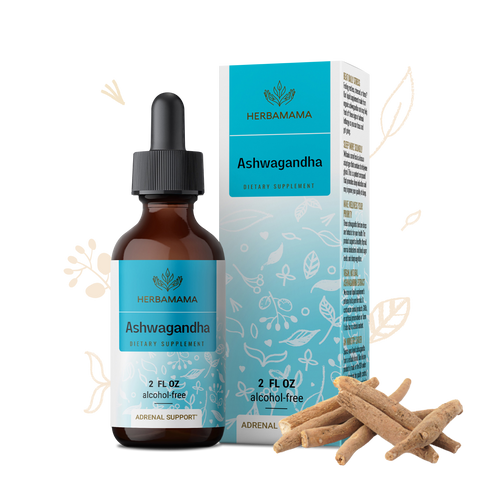We live in an era where health & wellness have become paramount. More and more people are stopping bad habits, starting exercising, eating a balanced diet, paying attention to mental health and taking care of different aspects of their health. In this regard, natural supplements have emerged as pivotal components of many health and dietary regimens. Different plants, minerals and vitamins, are sought after for their potential to enhance physical health, mental clarity and overall well-being.
However, the increasing reliance on natural supplements comes with the necessity for a proper understanding of their use. Knowledge about what to take, how much to take and when to seek professional advice is paramount. As such, navigating the world of natural supplements is less about following trends and more about understanding their role within a holistic approach to health. This article aims to provide a clear guide of do’s and don’ts for incorporating natural supplements into your wellness regimen safely and effectively.
Natural Supplements: Definition & Types
Overall, dietary supplements are concentrated sources of nutrients or other compounds with a nutritional or physiological effect. They are usually derived from plants, animals, or mineral origins, intended to supplement the diet. Unlike pharmaceutical drugs, they are not intended to cure diseases but to provide the body with the necessary components it might be lacking or needing in greater quantities for optimal function.
There are various types of supplements available now in the market. You can easily find herbs, vitamins, minerals, amino acids and others. Here’s a brief overview of the most popular types people are seeking for:
- Vitamins: Vitamin supplements provide the nutrients the body needs to function correctly but cannot produce on its own in sufficient amounts.
- Minerals: These are inorganic elements sourced from the earth and water. They play vital roles in various bodily functions, including bone formation, heartbeat regulation and hormone production.
- Herbs or Botanicals: Various plants or parts of plants are used for their flavor, scent or health benefits. Herbal supplements often come in the form of extracts, teas, powders or capsules.
- Mushrooms: Fungi are rich in antioxidants, vitamins and minerals. Some also contain unique compounds only inherent to fungi.
- Amino Acids: These are building blocks of proteins that play a critical role in almost all biological processes. Some amino acids are essential because the body cannot make them and they must be obtained from the diet.
- Enzymes: They catalyze (speed up) chemical reactions in the body. Enzymes are crucial for digestion, metabolism and other bodily processes.
- Fatty Acids: These essential components are important for maintaining the structure of cellular membranes and producing energy.
- Probiotics: These are live microorganisms, often referred to as "good" bacteria, that are similar to beneficial microorganisms found in the human gut. They are used to improve gut health and support the immune system.
The Do's of Taking Natural Supplements
Navigating the world of natural supplements requires a careful and informed approach to ensure safety and efficacy. Here are essential practices to adopt when incorporating supplements into your health routine!
1. Choose Quality Products
Identifying high-quality, safe supplements is crucial for maximizing benefits and minimizing risks. Look for products that have certifications from reputable organizations. These certifications indicate that the supplement has been tested for quality, purity and potency. Additionally, third-party testing by independent labs can provide an extra layer of assurance that what's on the label is what's in the bottle, free from harmful contaminants.
2. Follow Recommended Dosages
The importance of adhering to recommended dosages and instructions cannot be overstated. Taking more than the advised amount does not necessarily increase the benefits and can lead to adverse effects. Each supplement's effective dosage can vary based on individual health needs, conditions and the presence of other medications or supplements. Always start with the lowest possible dose recommended on the product label or by a healthcare provider.
3. Adjust Your Diet and Lifestyle
Supplements are most effective when used in conjunction with a balanced diet and healthy lifestyle. They are intended to "supplement" rather than replace the nutrients you get from food. Assess your diet to identify any nutritional gaps that supplements could fill. Remember, a well-rounded diet rich in fruits, vegetables, whole grains and lean proteins should be the foundation of your nutritional intake!
4. Consider The Best Time to Take Supplements
Indeed, the time when you take supplements can affect their absorption and effectiveness. Water-soluble vitamins (such as B vitamins and vitamin C) are best taken earlier in the day on an empty stomach to enhance absorption. Fat-soluble vitamins (vitamins A, D, E, and K), on the other hand, should be taken with a meal containing fats for optimal absorption. Probiotics are most effective when taken on an empty stomach, while minerals like magnesium may be best taken in the evening due to their relaxing effects.
Natural supplements for anxiety and sleep supplements are best to take in the evening or close to bedtime. They work by interacting with neurotransmitters in the brain, calming the nervous system and contributing to mild sedative effects that may be undesirable in the morning.
5. Consult Healthcare Providers
Before starting any supplement regimen, it's essential to consult with a healthcare provider, especially if you have existing health conditions or are taking other medications. Healthcare professionals can provide personalized advice based on your health history and current medications, helping avoid potential interactions and side effects. They can also recommend reputable brands and advise on appropriate dosages and timing for taking supplements.
The Don'ts of Taking Natural Supplements
Incorporating natural supplements into your health regimen requires not only knowing what to do but also what to avoid. Here are critical don'ts to keep in mind.
1. Don't Use Supplements as a Cure
Supplements should be viewed as complementary to treatment, not replacements for conventional medicine. For instance, natural supplements for depression are designed to be part of a treatment regimen, which may include therapy, lifestyle changes, and, when necessary, prescribed medication. Similarly, natural supplements for weight loss are not magic solutions that shed extra pounds on their own. They can complement the weight loss effects if integrated into a holistic regimen that includes a balanced diet and regular exercise. Relying solely on supplements for treatment or significant health improvements can lead to disappointment and potential health risks.
2. Don't Ignore Your Body’s Signals
Aways be attentive to how your body reacts to a supplement. Side effects can range from mild to severe, and what works for one person may not work for another. If you experience adverse effects or allergic reactions, such as digestive upset, rash, headache or any change in mood or physical well-being, consider it a signal from your body. It's important to stop taking the supplement and consult a healthcare provider to determine whether the reaction is related to the supplement and what steps to take next.
3. Don't Mix Supplements Indiscriminately
The risks of combining supplements or taking them alongside certain medications without professional advice cannot be overstated. Some supplements can interact with medications, reducing their efficacy or increasing the risk of adverse effects. Always consult with a healthcare provider before adding a supplement to your regimen. It is especially vital if you are taking prescribed medications, to avoid harmful interactions.
4. Don’t Overconsume
Taking higher doses of supplements than recommended can lead to health risks rather than providing additional benefits. More doesn’t always mean more effective! Always adhere to the recommended dosages on the product label or those given by a healthcare provider to avoid the risks associated with overconsumption.
Natural Supplementation: Final Provisions
Various vitamins and supplements can indeed become an integral part of a health and wellness regimen. They can offer a means to supply the body with essential nutrients it may lack and support various bodily functions. From aiding in sleep and reducing anxiety to fortifying the immune system and enhancing nutritional intake, the benefits of carefully chosen supplements can be substantial. However, achieving these benefits depends on a conscious and informed approach to supplementation.
A responsible approach requires equipping yourself with knowledge about the world of supplements, including understanding the specific benefits, proper dosages and how each supplement works in the body. Consulting with healthcare professionals, choosing quality products, adhering to recommended dosages and being attentive to how your body responds are all critical steps in this process!
Remember, supplements are powerful tools that can enhance your overall well-being, but they are most effective when part of a holistic approach to health that includes a nutritious diet, regular physical activity and adequate rest.
Frequently Asked Questions
1. Is it safe to take multiple supplements at the same time?
Taking multiple supplements at the same time requires careful consideration to avoid potential risks. The safety of combining supplements depends on several factors, including the specific supplements involved, their dosages, your individual health conditions and whether you're also taking prescription medications.
Remember, indiscriminately mixing supplements or taking them with certain medications can lead to harmful interactions. Always consult with a healthcare provider to ensure safe combinations.
2. Can I replace my medications with natural supplements?
No. While natural supplements can play a supportive role in overall health and wellness, they are not substitutes for medications that are prescribed for specific medical conditions.
Discuss any supplements you are considering with your doctor or a qualified healthcare professional. They can advise you on whether a supplement could interfere with your medications or adversely affect your health condition.
3. Can taking more than the recommended dosage of a supplement be more beneficial?
Taking more than the recommended dosage of a supplement is generally not more beneficial and can, in fact, be harmful. Supplements contain active ingredients that can have strong effects in the body.
Always read the labels of any supplements and strictly adhere to the recommended dosages provided by manufacturers or healthcare providers.
4. What supplements should I take?
Determining the best supplements largely depends on your individual health needs, as well as factors like your current health status, any medications you're taking, your diet and your overall lifestyle. Identifying what health areas you'd like to enhance is a crucial first step. Based on this knowledge, you can find the product that works best. Natural supplements can provide targeted support for these goals, filling nutritional gaps in your diet or offering therapeutic benefits derived from their active components.
5. What are herbal supplement?
Herbal supplements are made from various plant parts and are used for their therapeutic properties. Unlike conventional medications, which often contain synthetic ingredients or isolated active compounds, herbal supplements harness the natural compounds found in plants. These compounds can include a wide range of phytochemicals, such as flavonoids, terpenes and alkaloids which can enhance various bodily functions.





